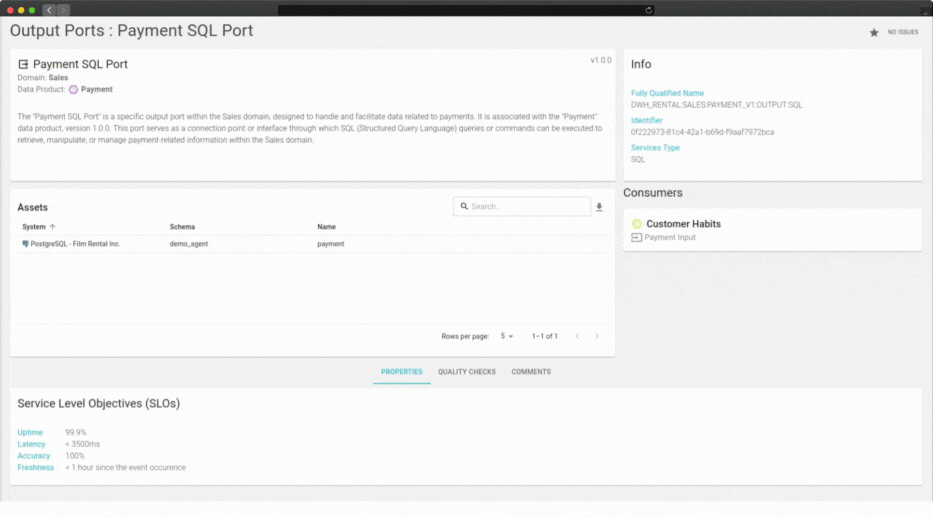Overview
Data contracts are agreements between producer and consumer applications that rule both data and how it is exchanged. They provide transparency over dependencies and data usage across a data architecture. This increases consistency, clarity, reliability and quality of data.
Data contracts allows data products to have clear interfaces exposed to their consumers that formally specifies the scope, the provided services, and how to access them.
Features
Blindata offers a set of features that facilitates the definition, the validation and the monitoring of data contracts.
Ownership
Handle collaboration between producers and consumers with Blindata Stewardship and Responsibilities module.
Standardization
Promote standardization through the adoption of a data product descriptor specification.
Compliance
Prevent bad practice and ensure compliance to the descriptor specification using federated computational policies.
Prevent Breaking Changes
Avoid disruptive changes with policies enforcing before data products deployment.
Monitoring
Use Blindata Observability and Quality module to monitor the data assets specified in the data contract.
How to
Standardization can be achieved through the adoption of a data product descriptor specification, which should be:
- Tech Agnostic: Compatibility with any technology stack.
- Incrementally Adoptable: Capability for gradual adoption.
- Declarative and Modular: Description of data appearance, not production, with modularity.
- Extendable: Flexibility to accommodate custom properties and integrate with external standards.
The descriptor released by the Open Data Mesh Initiative meets all of this needs, offering an open source specification for describing data products: a broader concept of service agreement, with data contracts being a specific case.
Verify policy compliance during data product lifecycle to monitor:
- Compliance of the descriptor to the specification to promote standardization.
- Cloud resources configured according to governance policies data location, backup, security features.
- And many other use cases…
This can be implemented using Open Data Mesh Platform, which is an open source data-ops platform that manages the full lifecycle of a data product from deployment to decommissioning.
